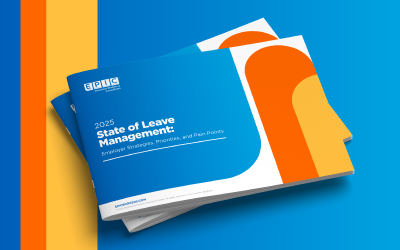For more of our coronavirus coverage, visit epicbrokers.com/coronavirus
Viewpoints from Craig Hasday
The COVID-19 pandemic no doubt has and will take its toll on mental health. In the United States, there has been a 1,000% increase in mental health calls to federal helplines. And the complete impact will take time to manifest. Pre-existing mental health conditions will be exacerbated, as we shared in a recent post from our Coronavirus & Workplace Wellbeing series.
I recently listened to a presentation by Dr. John Rott at Kaiser Permanente Medical Group on mental health issues related to the pandemic.
Americans are feeling the impact of balancing work, childcare and child education, caring for parents, and economic stress – and many are severely impacted by loneliness.
Dr. Rott indicated that, prior to the pandemic, one in five people in this country had a mental health issue each year and 50% have had one at some point in their lives. Yet only 43% with conditions got treatment. Depression is the leading cause of disability. 48 million suffer from anxiety, 20.2 million have abused chemical substances, 17.7 million have had a major depressive episode, and 9 million suffer from post-traumatic stress disorder (PTSD). 62% of work absences are due to mental health conditions. A 2020 study by Aetna International of 1,000 office-based workers in the U.S., U.K., UAE and Singapore revealed that over 50% of employees diagnosed with mental health issues lied to their employer about the reason for taking a sick day. Enter COVID-19, and it’s clear that mental health problems are about to worsen – significantly. The Centers for Disease Control and Prevention (CDC) website raises concerns with:
- Your health and the health of your loved ones
- Changes in sleep or eating patterns
- Difficulty in sleeping or concentrating
- Worsening of existing chronic health or mental health conditions
- Increased use of alcohol and other drugs
Adding to the upcoming surge is a significant shortage of providers.
Primary care doctors in fee-for-service arrangements are under-reimbursed for treating mental health and often prescribe medications without much follow-up care. Kaiser indicated that 50% of California mental health providers have moved to cash-only practices – so those seeking care in-network will have fewer resources to which they can turn. Kaiser Permanente’s response has been to increase access to providers and to integrate more expansive mental health treatment with primary care and other specialties. They have also increased telepsychiatry and embedded additional online resources and digital tools supported by live counselors. During this pandemic, 99% of Kaiser’s psychiatric care has been through telemedicine with reported high satisfaction.
Employers should be concerned.
Proactively addressing mental health will be critical to mitigating escalating costs. Start with promoting resources like Employee Assistance Programs (EAPs). An effective EAP can be used to triage issues and maintain confidentiality. Many employers are looking at paycheck loans and cash-advance programs to address employee’s financial concerns. Low-interest advances can be made available with no credit exposure to the employer. These programs will also eliminate issues associated with extensive 401(k) borrowing. Caregiver support and standby childcare are two other benefits being considered by employers.
Adding mental health resources may be worth the budget impact. There are many new entrants to the virtual mental health landscape. These platforms can reduce stigma and other barriers to access to help employees and their families through this stressful time. In these days of virtual meetings, employers should do their best to encourage social interactions like virtual painting classes, trivia contests, and cocktail hours – we recently shared additional ways to stay connected.
There is no reason to wait for open enrollment. The time is now. It will be a win for your employees and a win for you.
Join the conversation – participate in our In It Together pulse surveys on our COVID-19 strategic collaboration and idea-sharing forum. Visit epicbrokers.com/insights/preparing-for-the-new-normal
Related Content
Products
Employee Benefits Consulting
Our dedicated benefits team is focused on delivering better outcomes – to both your benefits program and ...
Products
Wellbeing & Health Management
Our consultants help you create a strategy around health management that will impact your culture and your ...
Products
Compliance
We provide comprehensive consulting services and in-depth education regarding the ever-changing employee ...



